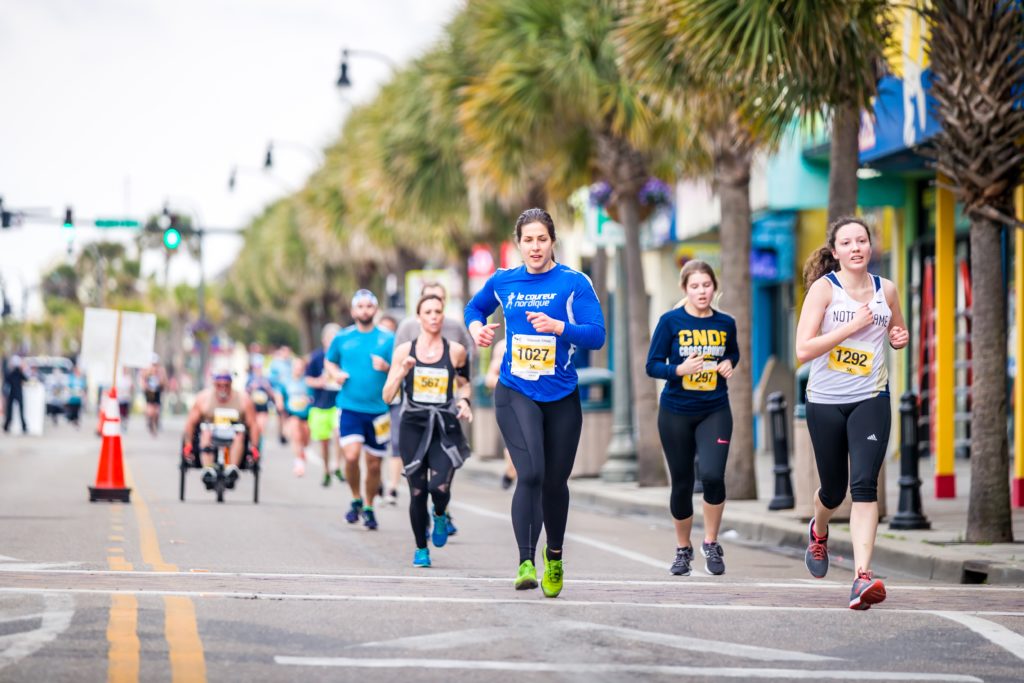Why Do Endurance Athletes Race?

Every endurance athlete has a specific reason why they started participating in their sport. For some, it could have been that they took part in these activities when they were younger, and it is a part of their life. For others, it could be that they were up for a challenge, both mentally and physically. Some might enjoy the thrill of competitive environments. Have you ever thought about why you started participating in your sport? Whatever your reason, your sport plays an integral part in your athletic identity.This sense of athletic identity also connects to your decision regarding how to view training and racing for your sport. So, why do endurance athletes race?
It is fascinating to see the differences in the level of competition of endurance athletes. For example, why do some athletes train for a specific 5k or a marathon race while others train for a 5k or marathon to run on their own? Are endurance athletes who compete in races considered more competitive than those who race independently? Are there underlying factors that separate both groups?
Some explanations could include the cost of racing and time constraints. These can exist among individuals choosing between a race or racing on their own. Still, there are other aspects to consider based on psychology regarding how races could motivate some athletes.
Why Do Endurance Athletes Race?
Racing Environments
Race organizations have stepped up their game in the past couple of years, especially since the return to racing after the COVID-19 pandemic. Each race organization has its unique spin regarding the type of athlete they attract, the swag they provide, and the experience athletes walk away with. Athletes may keep coming back for more if the experience is top notch. For example, the Rock ‘N Roll race series provides athletes with an energetic start and live bands along the route. The RunDisney races provide athletes with magical miles and character experiences to the finish. In addition, some athletes may sign up for these races specifically for fun, motivating environments that they will experience or have experienced prior. (Editor’s Note: Find events from across the country HERE)
Competitiveness
Research shows that individuals push themselves further in physical activities when competing against others with similar abilities? These findings indicate that healthy competition can go a long way! The competitiveness that races provide could be a motivational factor some endurance athletes enjoy as they push themselves to achieve their goals.
Shared Experiences
When running in races, athletes never know who they might run next to for part of the race. Meeting new athletes with similar interests and abilities can enhance the feeling of companionship among racers. In many of these environments, athletes might turn towards supporting and motivating others. They will also have support and encouragement from others throughout the race. Being a part of these races provides participants with a sense of shared identity with other racers.
Spectator Support
If you’ve participated in an endurance race, you’ve seen a spectator holding up a sign that made you laugh! Or, you’ve witnessed spectators cheering and shouting your name at the perfect time that you needed encouragement! So many endurance athletes select races based on spectator involvement and support. Some research has indicated that spectators can enhance motivation, excitement, and even the behavior of athletes! This could be a factor that serves as a main reason as to why endurance athletes race one event versus another.
Regardless if an endurance athlete is competing in a race event or racing on their own, they can be successful. Each athlete is unique in how they view their purpose and connection to the sport. Athletes are also unique in choosing their desired distance to complete, training schedule, and outcome. Recognizing these psychological elements of racing is essential when considering the motivational factors that drive an athlete. These motivation can be both intrinsic and extrinsic. For some athletes, receiving that medal at the end of the race is the reward needed to stay engaged. The idea of receiving the medal can also motivate them throughout their training. For other athletes, competing the distance by themselves connects to their intrinsic motivation and leaves them feeling fulfilled.

JoAnne Bullard is a Doctor of Sport and Performance Psychology and a Certified Mental Performance Consultant through the Association for Applied Sport Psychology. She is also a Certified Strength and Conditioning Specialist through the National Strength and Conditioning Association.
She serves as a tenured Associate Professor at Rowan University and is the owner of Absolute Fitness, LLC. Her goal is to provide a holistically applied approach for clients through performance psychology consulting. She has experience working with athletes of all ages, including endurance athletes, in individual and group sessions. Her research areas include mindfulness, performance anxiety, goal setting, coping strategies, and mental well-being of athletes.
She has completed five marathons, numerous half-marathons, and is always looking for her next race.








